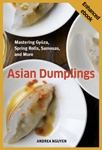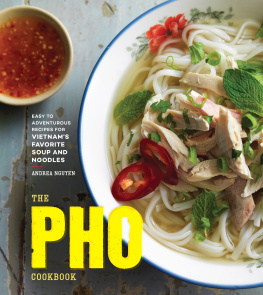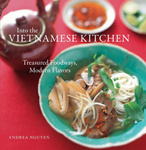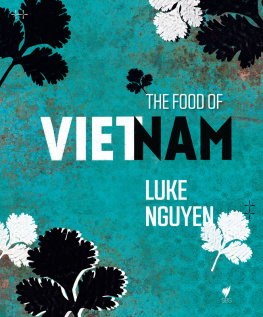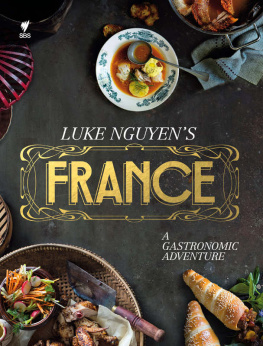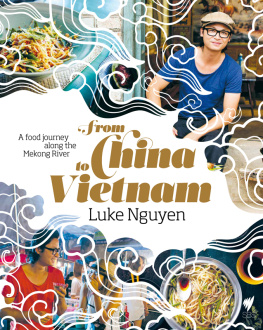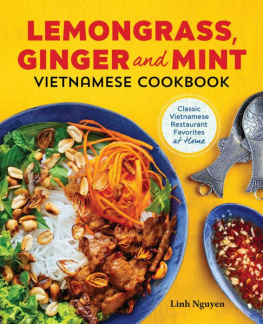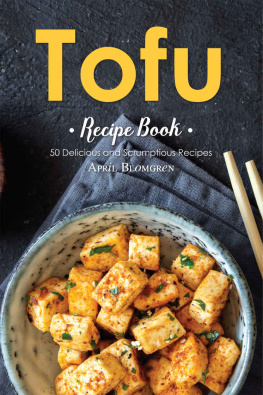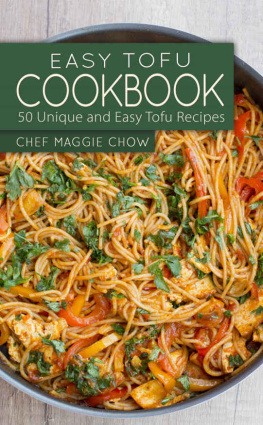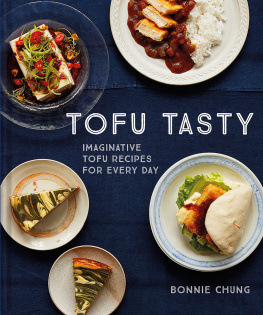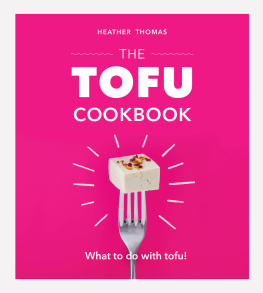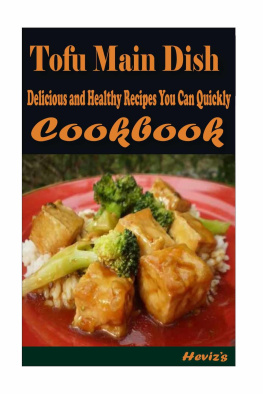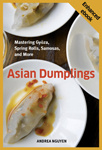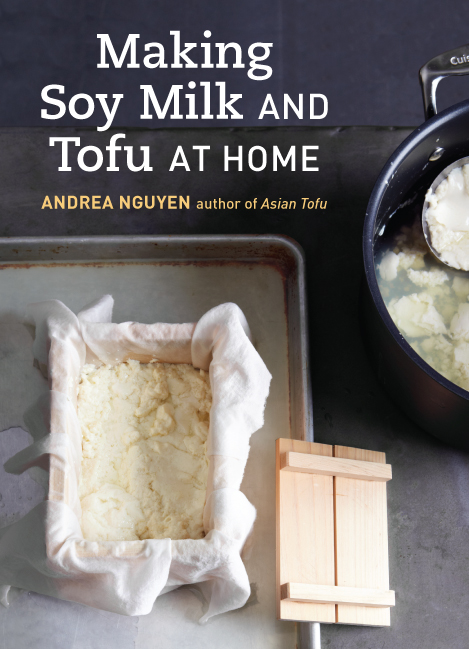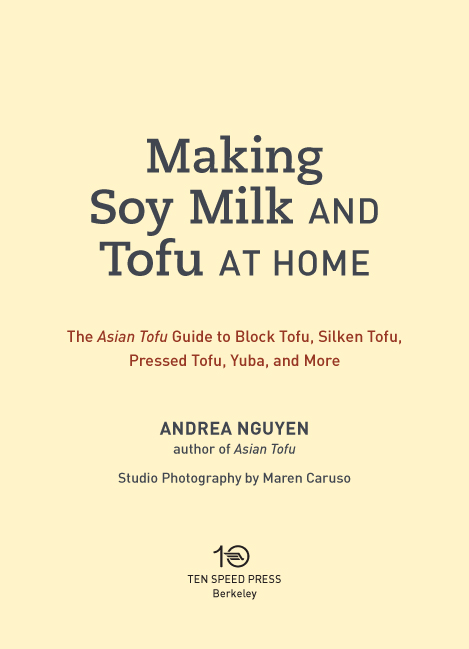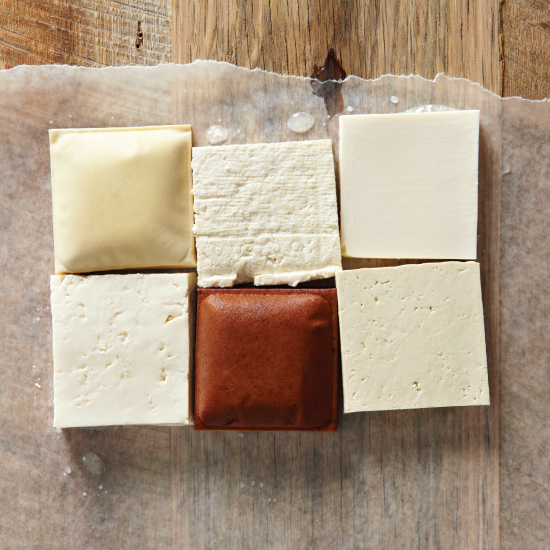
2013 Ten Speed Press Ebook Edition
Compilation copyright 2013 by Andrea Quynhgiao Nguyen
Text and location photography copyright 2012 by Andrea Quynhgiao Nguyen
Studio photographs copyright 2012 by Maren Caruso
All rights reserved.
Published in the United States by Ten Speed Press, an imprint of the Crown Publishing Group, a division of Random House, Inc., New York.
www.crownpublishing.com
www.tenspeed.com
Ten Speed Press and the Ten Speed Press colophon are registered trademarks of Random House, Inc.
With the exception of the photographs listed below, all others are studio photographs by Maren Caruso or location photographs by Andrea Nguyen.
This ebooklet is comprised of text and photographs originally published as part of Asian Tofu: Discover the Best, Make Your Own, and Cook It at Home by Andrea Quynhgiao Nguyen.
Photograph courtesy Karen Shinto
eBook ISBN: 9781607745693
Food styling by Karen Shinto
Prop styling by Dani Fisher
v3.1
CONTENTS
Introduction
Why make tofu yourself? Because you want to experience it at its peakfreshly made, creamy, and subtly sweet. Homemade tofu is as precious as homemade bread.
In parts of Asia where tofu is a mainstay, most people rely on local producers and market vendors; they dont typically make their own tofu. This is probably why a number of Asian people reacted with pleased surprise when I mentioned I was making my own tofu at home. One day while I was shopping for a cedar tofu mold at the Soko Hardware store in San Franciscos Japantown, several older women overheard my conversation with the store clerks and peppered me with delighted questions. One of them rhapsodically recalled growing up in Fremont, California, where the neighborhood tofu maker cooked huge quantities of soy milk in a cauldron set over a backyard wood fire.
Still, some home cooks do take on tofu making. In Japan, supermarkets sell bottled soy milk with tiny packages of coagulant for this purpose. And a few years ago, a family friend asked how to make fresh tofu; she wanted to relay the information to a Vietnamese woman who had immigrated to Africa. And nowadays many people are talking about making tofu at home. It no longer seems so arcane. In fact, when I brought homemade tofu to a dinner party, our Swedish-born hostess without hesitation remarked, Oh, making tofu is like making yogurt.
You can prepare many recipes with purchased tofu. However, to really explore tofu's flavors, textures, and versatility, take the DIY approach and make it from scratch. There are many options for getting started. You can make the full journey from bean to curd by starting with , then embark on your own tofu adventure.

Clockwise, from top left:
Tofu Essentials: Ingredients
Making tofu requires only three ingredients: dried soybeans, water, and coagulant. With so little involved, its important to start out with good ingredients to ensure results that are worth your effort.
Dried Soybeans
Selecting good soybeans is part of the tofu makers craft, but you do not have to struggle with it. Tofu is not made from the green edamame beans that are boiled up for snacking. You need mature, dried soybeans.
There are countless varieties of dried soybeans, and their seed coats come in many colorsbuff, yellow, green, brown, black, and mottled. Most are yellow inside (some green or black soybeans have light green interiors). They are roundish and range from tiny lentil-size to giants the size of blueberries. When purchasing soybeans:
Choose handsome, clean beans with uniform size and shape. The light beige or pale yellow ones are most commonly used for making tofu.
Check for the soybeans hilum, the eye that indicates where the seed was attached to the pod. The hilum varies in color, but on the choicest soybeans for making tofu its nearly invisible.
Look for large beans (think of a regular-size frozen pea); they generally contain more protein and fat, resulting in a higher yield. However, huge beans do not necessarily mean better tofu. When comparing soybeans, peruse the nutritional labels, if present, to determine fat and protein content.
Buy organic or non-GMO dried soybeans: they are cultivated in a healthy and sustainable way, and they make exceptionally tasty soy milk and tofu.
Shop for dried soybeans at health food markets and Asian grocers, or in the bulk section of some supermarkets.
Consider buying soybeans directly from a grower. Iowas Fairview Farms cultivates Laura Soybeans, an excellent non-GMO bean.
Try different kinds of soybeans from a variety of sources. The price is extremely reasonable, so your experimentation wont break the bank.
Taste beans that have been soaked but do not swallow them because they are hard to digest. Good soybeans should have a pleasant, fresh flavor.
Store dried soybeans in an airtight container at room temperature. They will keep indefinitely.
Water
Use water that you regularly drink to soak the beans and render the soy milk. I use filtered tap water, but you may prefer spring or well water. Rinse the beans and wash equipment with regular tap water, but the water used for making soy milk, and subsequently to yield tofu, should taste good.
Coagulant
A handful of coagulants can be used to make tofu, from everyday vinegar and lemon juice to gypsum, Epsom salts, and boiled-down seawater. Japanese producers traditionally preferred nigari extracted from seawater to coagulate their soy milk, while Chinese tofu makers favored gypsum and Vietnamese tofu makers used the whey from previous batches as a coagulant. Nowadays, those divisions are blurred and tofu makers use what they deem to be optimal for their customers. For example, some people use gypsum for silken tofu while others prefer the ease of glucono delta-lactone (GDL), a white crystalline powder that is acidic in nature. Read commercial tofu labels and you may see a combination of coagulants. Regardless of what is used, the coagulant works to solidify the protein and oil in hot soy milk.
In trying out most of the coagulants listed above, Ive found that gypsum and nigari are the best (and equally good), with Epsom salts coming in third. All three are common minerals classified as types of salt. They are also easy for home cooks to obtain. Vinegar and lemon juice produce tofu that is grainy in texture and slightly sour tasting. Some people like that tang and say that the acid helps preserve the tofu. GDL is a pricey industrial product. Using recycled whey works best if you are a professional producer with space to store the whey and are making tofu every day.
The yield of tofu solids is about the same regardless, but there are subtle flavor and texture differences in the end product. Gypsum is the most versatile coagulant for the recipes in this book.
THE TOP THREE TOFU COAGULANTS
Nigari (magnesium chloride)
Characteristics: Produces slightly sweet flavor; firmer tofu than gypsum yields. Can be taken with water as a health supplement, but the flavor can be very bitter. Nigari comes from the Japanese nigai, which means bitter.

